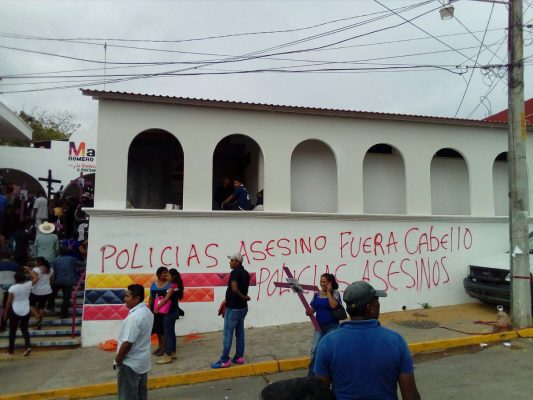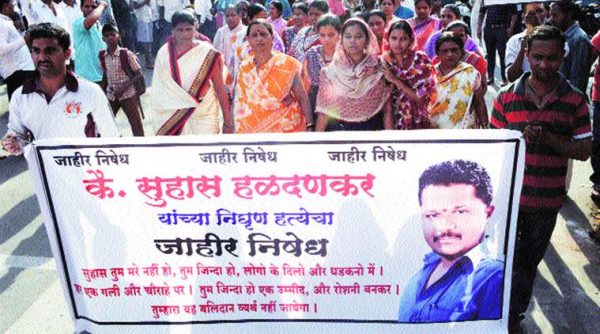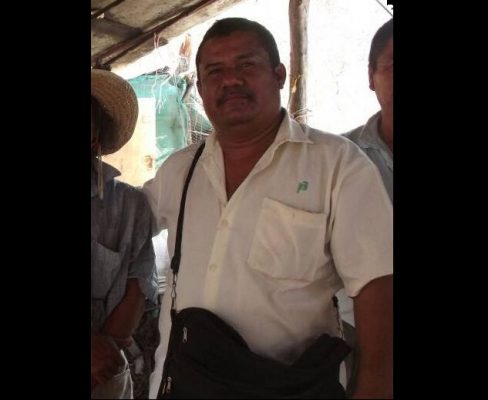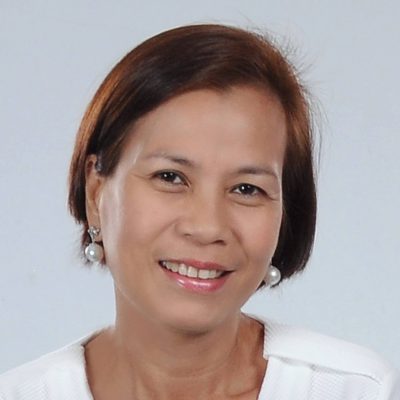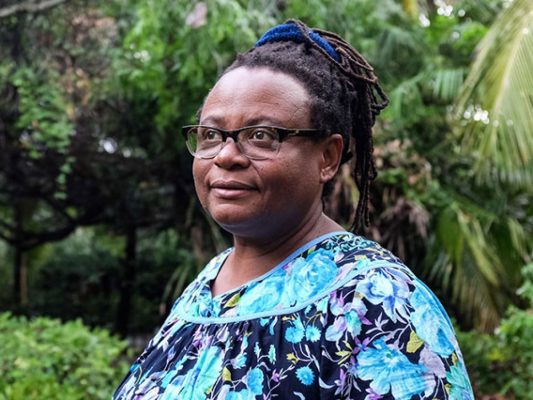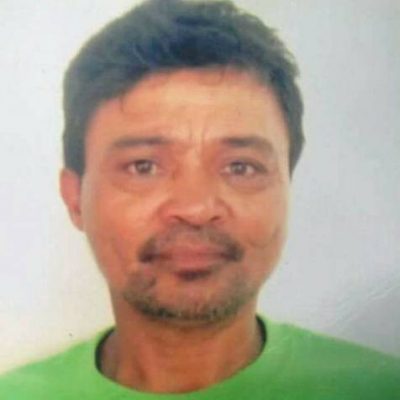
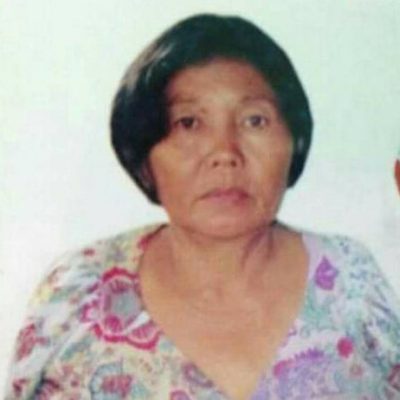
Originally published in InterAksyon.com
The online news portal of TV5
Andrew Anderson is executive director of Ireland-based Front Line Defenders, which works on the security and protection of human rights defenders at risk around the world. The group notes that ‘while many people are focusing on killings in the context of the crackdown on the drug trade, no one is really focusing on the pattern of attacks on human rights defenders.’ Last year, Front Line Defenders recorded 281 killings of human rights defenders worldwide, 31 of these in the Philippines, making it ‘the most dangerous country in the world in which to be a HRD, outside of the Americas.’
On Thursday, 2 March, Jimboy Tapdasan Pesadilla was contacted by a neighbor to go to his parents’ house urgently. When he got to the house, he found several neighbors outside the house and a team of police inside, taking pictures. His father and mother had both been shot dead.
Ramon Dagaas Pesadilla and his wife Leonila Tapdasan Pesadilla were both active members of the Compostela Farmers’ Association. The CFA has been vocal in its opposition to major mining projects in the area, and as a result their members have been regular targets for the security forces and thugs hired by the mining companies. Ramon and Leonila had recently donated land for a lumad (the non-Muslim indigenous people of the southern Philippines) community school.
This had made them a particular target for attack as the security forces accuse indigenous community schools of fostering support for the New People’s Army. Human rights groups have reported an upward trend in human rights violations against indigenous people ever since fighting resumed between communist rebels and government forces following the termination of both parties’ unilateral ceasefires early last month.
These latest killings bring to 17 the number of HRDs killed since the start of 2017.
When President Benigno Aquino III of the Philippines left office in June 2016, he could at least claim some credit for a significant drop in the number of extra-judicial executions, even though the activities of government-backed death squads still remained a major cause for concern.
Since the election of President Rodrigo Duterte, killings are once more on the increase. These crimes are rarely investigated or the perpetrators held to account. According to Human Rights Watch’s 2016 Annual Report: “Among the reasons are lack of political will to investigate and prosecute abuses by state security forces; a corrupt and politicized criminal justice system; and a traditional “patronage politics” system that protects officials and security forces.”
In its 2016 Annual Report, Front Line Defenders reported 281 killings of human rights defenders around the world. Thirty-one of those killings took place in the Philippines, the largest number of killings of HRDs in any country outside the Americas.
By calling for the extrajudicial killing of those involved, or suspected of being involved, in the drug trade, President Duterte has sent a signal that murder is an acceptable way of dealing with certain social problems. The ending of the peace talks and the ceasefire has made an already volatile situation even more dangerous, especially for indigenous peoples or environmental HRDs who object to mining or other polluting industries.
The Philippines is now one of the most dangerous countries in the world in which to be a HRD and the government of President Duterte must act urgently to break the cycle of violence, ensure the security forces operate within the rule of law and bring the perpetrators to justice or stand accused of complicity in murder.
The recent decision to involve the Armed Forces of the Philippines in the war on drugs, especially in the lands of indigenous peoples, is a dangerous development which will do nothing to solve the drug problem or resolve the decades-old conflict, but will certainly increase the death toll.
Since the beginning of February there has been a catalogue of killings of lumad community leaders. On 3 February, Matanem Lorendo Pocuan and Renato Anglao, were gunned down in separate incidents. On 6 February, Emelito Rotimas was shot eight times by suspected military agents, while later the same day Glenn Ramos, was shot dead by personnel of the Criminal Investigation and Detection Group. On 16 February, Edweno ‘Edwin’ Catog, was shot by two men, believed to be linked to the 46th Infantry Battalion-Philippine Army. He had previously been warned by a relative that he should go into hiding because he was on a military hit list. On 19 February, Willerme Agorde of Mailuminado Farmers’ Association Incorporated (MAFAI) was shot by suspected members of the Bagani paramilitary group.
According to Cristina Palabay of human rights organization Karapatan, “There is a consistent pattern in these killings. Every political killing is justified by the military with claims that victims are members of the New People’s Army (NPA), and have been killed during ‘legitimate’ encounters’. In the cities, we are being fed a similar narrative — with the police justifying drug-related killings during ‘legitimate’ police operations. These killings are perpetrated by state security forces who seem to think that they have been granted the right to kill indiscriminately.”
President Duterte has encouraged the killers and must be held responsible for his actions. The international community must challenge President Duterte’s endorsement of murder. Failure to do so will send a signal to dictators everywhere that they can wage war on their own people with impunity.
The number of killings is not just a measure of entrenched violence, but an indicator of the failure of successive Philippine governments to deal with issues of poverty, corruption and discrimination, as well as the lack of economic or social opportunities for the vast majority of the people of the Philippines.
A key step towards addressing this issue is for the government to recognize the key role of HRDs in helping to create a more just and equal society in the Philippines.
